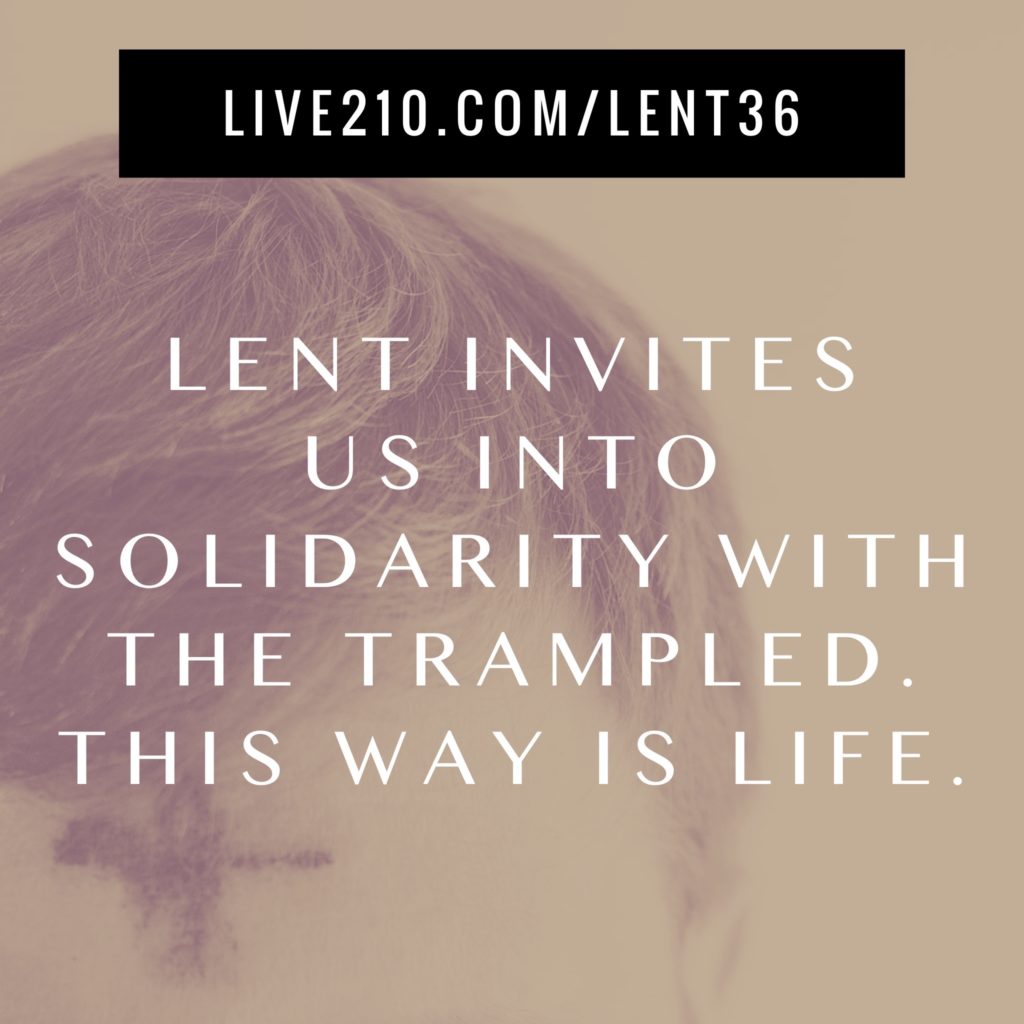5 min. to read.
Today is the 36th day of Lent. The reading today is Luke 23:39-43, Jesus crucified between two condemned men.
One of the classic Christian images is a silhouette of three crosses on a hilltop. Three crosses. Three! Our theology leads us to focus on only one. Of course, that’s what matters, right? Jesus, crucified between two criminals. We see Jesus’ suffering. We think about his sacrifice. Fine, but for a moment, zoom back and hold all three crosses in your mind.
For the Roman soldiers tasked with this bloody work, the day Jesus was crucified was just another day. For them, his crucifixion wasn’t special. I know this is hard to imagine. We live in a culture deeply shaped by nearly two thousand years of Christian imagery. For many, the cross immediately brings Jesus to mind, but that’s a trick of retrospection. Without the recollection Jesus’ first followers shared then recorded in the Gospels and Paul’s letters, this event would be lost to history. By itself, Jesus’ crucifixion wasn’t especially memorable. It wasn’t even the only one that day. This was a batch job, three more to add to the tally of thousands crucified over the years and across the empire.
Before we rush ahead to the meaning of Jesus’ death on the cross, stop here and observe. There is gospel truth even here.

In this moment of suffering, Jesus is not alone. He is with others suffering. He is to be found with the condemned. He is a member of the great extended family of those who are little more than a sad curiosity to passers-by or even a parental warning. “Keep your nose clean. You don’t want to end up like that poor guy over there.” He is one of the many roughly handled by law enforcement officers, afforded no dignity or respect because they “had it coming to them.” He is among the company of the lynched.
On Golgotha, Jesus is one of three. Those three are only that day’s roster out of thousands crucified. All those crucified by Rome are just a fraction of the countless shamed, tortured, and killed at the effect of powers beyond their control. Jesus dies on the cross flanked by men society would rather kill than deal with. This happens so often, and in so many ways, it’s now just part of the background buzz of civilization.
This is the incarnation. I know our minds flinch, immediately gilding the scene with atonement theology. We turn this event into the final puzzle piece that completes the picture of our salvation story. Please, before we turn away from the horrific scene, see what our minds don’t want to accept.
Jesus walks among the outcast. He doesn’t just walk among them. He becomes one of them, and not in some symbolic way, but quite literally. He suffers with them. He experiences degradation with them. He is treated as less than human with them. He dies with them. Jesus is one of them. Shouldn’t this challenge our theology?
What changes if we see Jesus as just one of three that day? If Jesus is God, then God was in that place. God knows from personal experience the excruciating pain of powerlessness and humiliation. God knows something we cannot imagine God knowing: what it feels like to be fully in the power of someone who counts you as nothing, who hurts you and degrades you, even while saying they are doing it for a good reason.
Our collective intuition has always suggested that only a powerful God, unable to be touched by suffering, is able to save us or comfort us. When we are powerful, when we get our way, that’s when we imagine we are somehow feeling the most like God. Jesus turns this upside down. Even in the darkest places of pain, God is present. Even in our most isolating, humiliating experiences, God is with us.
This is deeply comforting, but it also unbolts a door of consciousness we may not want opened. For if God is with us in our painful powerlessness, then surely God is with the others. You know, the ones we don’t want to look in the eye. The ones we dismiss as the inevitable casualties of maintaining a society that is comfortable for us. The ones we think had it coming. The ones that power crushes.
If God is there, and following Jesus means following in his steps, then walking Jesus’ path will lead us to stand in solidarity with those our society would rather kill than deal with.
Lent invites us into solidarity with the trampled. This way is life.
